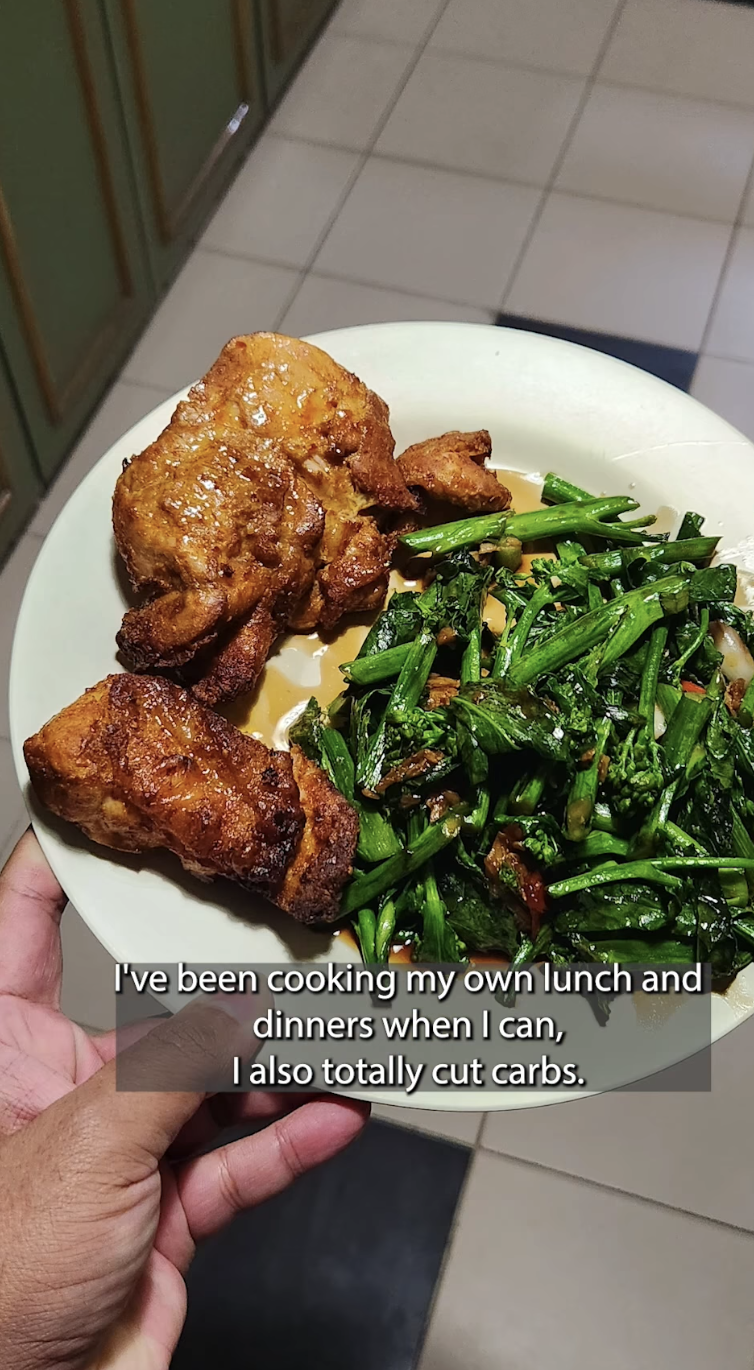Last Updated on 2023-03-29 , 10:36 am
Singaporean former internet personality Dee Kosh is back on the news again after his release from prison, for better or worse. You can read about it here.
Making a “secret comeback” on a new Instagram account, Dee Kosh has already garnered more than 7,200 followers in two days since his first post.
That’s not all—apart from making it back into headlines, he’s also lost 20kg and shared how he did it in his newest post. Before you think of emulating it, though, fair warning that part of it involves going to jail.
Going To Jail Helped
On 26 March, Dee Kosh posted a lengthy video on Instagram, mainly talking about his significant weight loss.
Apparently, he’d lost 20kg in prison, from a weight of 115 kg before incarceration to 95 kg in his last few weeks there. Here’s his post of him in the same shirt before and after.
View this post on Instagram
His new video has 16.6k views and more than 2,000 likes so far.
He opened the video by mentioning that he has seen questions from netizens and “will get around” to answering them eventually, but wanted to focus on the “lighter stuff first”. A few of these questions concern his weight loss, which his video addressed.

View this post on Instagram
The first factor he spoke about was going to jail (obviously). He explained that prison “was not like a buffet” where you could eat whenever (again, obviously), but also said that he had gone in with the resolution to lose some weight since he had “nothing to do inside”.
He weighed in at 115 kg at the start of his term, but only had an opportunity to weigh himself again at the end, where he found he now weighed 95 kg.
“I was so shocked. I thought I would drop to 100 at most, but I dropped down to 95,” he said.
Maintaining The Weight
As the familiar adage goes, weight is harder to maintain than to lose (is that even considered an adage?).
Dee Kosh agreed with this sentiment, explaining that food outside was “oiler”, “sweeter”, and there was more to eat, in comparison to prison food, which was “cleaner” and “not as MSG”.
So, to keep the weight off, he decided to eat cleaner and did this through meal prepping and cutting carbohydrates (referred to as carbs).

“I only eat vegetables and meat,” he expressed.
And according to him, the “craziest part” was that he picked up running.

The combination of the two activities helped “take him away” from social media, which he confessed he had been dependent on before his jail term.
Being away from that (yes, you can’t use your phone in jail) had spurred his realisation that he had been missing out on “me time”, which he now considers essential. The cooking and running now allow him to experience this “me time”.
However, he has one gripe—his weight is “hard stuck” at 94 kg, and he does not know how to lose some more, though he’d like to decrease it to 90 kg.
He ended off the video by telling viewers he would “slowly update” them on what has been happening in his life, and would get into the “heavy stuff”, like the case against him, when he felt ready to talk about it “eventually”.
He also showed his dog off to viewers, who apparently did not remember him after he came back from jail—he chalked this up to his weight loss and different scent.
But wait, let’s cycle back to his weight loss, or rather, weight stagnation.
“I really don’t know how to do that. I’m already not eating rice and carbs,” he lamented, referring to losing more weight.
Fortunately for him (and for you), I know how to “do that”.
Carbs: Friend or Foe?
Carbohydrates, or carbs, are often viewed as “fattening” and avoided when looking to lose weight. However, this isn’t entirely true.
First, what exactly are carbs? Carbs are a macronutrient or a sugar molecule, and the main energy source for your body. This means that if you completely cut them out (which is impossible, since vegetables contain carbs as well) or follow an ultra-low-carb diet, you risk shortchanging your physical and mental performance.
The key lies in what kind of carbs you eat. Carbs consist of simple and complex carbs, differing in their chemical makeup and hence, how your body breaks them down.
Because simple carbs (found in desserts, processed food, white bread, white rice) are made of a, well, simpler chain of molecules, they’re broken down quicker into glucose and spike blood sugar, producing a short energy spike. The blood sugar spikes can affect metabolism in the long term, impacting the way fat is stored and causing weight gain.
Complex carbs (brown rice, whole grain bread, sweet potatoes) include fibre, which mostly cannot be broken down by the body. Because of that property, eating food with fibre can make you feel fuller, making you less likely to overeat.
They also raise blood sugar levels for longer and produce a more lasting energy spike.
Contrary to popular belief, complex carbs are not fattening— instead, they help manage blood sugar and promote digestive health. Some studies show that these carbs not only help in controlling appetite, but also in speeding up metabolism and preserving muscle mass.
Apart from changing the type of carbs you eat, it’s also important to track calories. Obviously, if you overeat complex carbs, your weight will not drop, unfortunately. Generally, eating everything in moderation is essential—portions always matter, so a key strategy is controlling quantity.
So, if you’re hoping to push your weight down even further, don’t bother avoiding carbs like Dee Kosh— we know he’s not exactly the best model of how to live life, after all.




